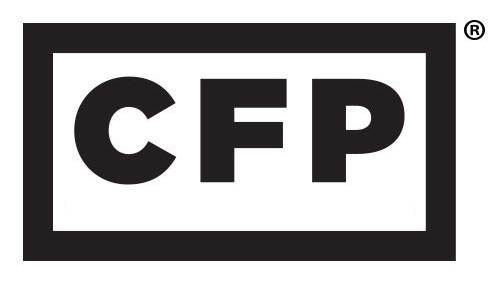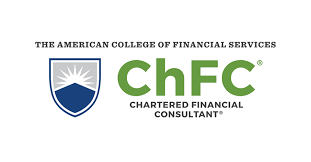
Free 15-Min Call with an Advisor (*Optional)

Free 15-Min Call with an Advisor (*Optional)




Continued Management and Coaching Services

How did you get your start in financial planning?
I started in 1998 working with retirement plans at nonprofit hospitals. It was quite a change from the knowledge I gained doing research for The University of California, Davis. After three years in the financial industry, I received my Certified Financial Planner® designation and began to do more comprehensive planning.
What drove you to an “Evidence-based” approach to investing?
The downturn of the “Great Recession” in 2008 and the impact it had on my clients led me to rethink my investing approach. Up to that point in my career I had been taught to sell broker dealer products and very little about an academic approach to investing. After seeing the pain my clients were going through in that downturn, I made a commitment to studying investing at a deeper level. I wanted to gain knowledge that did not come from the mutual fund companies my broker dealer wanted me to sell, the financial media, the annuity companies, or others with a vested interest. I wanted information that came from sources who did not have financial products to sell, including prestigious institutions like The University of Chicago.
What led you to partner with Paul Winkler Inc.?
This “reeducation” drove me to leave the broker dealer I was with. They were not cooperative in helping me apply this new knowledge and put continuous barriers up to its implementation. Eventually I opened my own company where I could deploy this “evidence based” approach with my clients that I felt (and still feel) is a much superior process. Following this academic approach is how I got to know Paul Winkler.
I have always had a commitment to lifelong learning and that is how I originally met Paul. We were at an educational conference together. I was very impressed by Paul’s depth of knowledge on the academics of investing but what really stood out was his ability to teach these concepts. Paul’s commitment to learning and passion for sharing that information left a strong impression on me from the start.
A couple years after first meeting Paul, in 2014, I found out through a mutual friend that he was looking for some help as his business in Middle Tennessee was rapidly expanding. I contacted him immediately and started the process that brought me to Nashville. I am incredibly thankful to be here. I had never thought about relocating but the opportunity to go and work with Paul was perfect. We had the exact same philosophy on an academically based investment approach, and I knew I could expand my own knowledge and teaching abilities and ultimately help my clients more.
What is the most satisfying aspect of how you now operate as a financial planner?
It is a bit cliché, but very true, that the biggest rewards for what we do come from the relationships we have with our clients. I am very fortunate to know so many people from so many different walks of life and I’m constantly amazed how interesting and creative my clients are. I work with farmers, medical professionals, academics, students, business owners, and many, many others. Working with and getting to know clients from such a diverse mix of professions has surely enriched my life.
What do you like to do to relax?
Away from financial planning my focus is mostly on family time with my wife Yvonne, my kids Angelo and Gianna, and our Airedale Terriers, Vito, and Rocco. Most weekends involve exercise, fixing things around the house, cooking family dinners, and spending time with friends. Over the last year or so I have begun to take up woodworking and get a great deal of enjoyment out of creating new projects.

The law requires a fiduciary advisor to act in the best interest of their clients.
This is not actually required of everyone who calls themselves a financial advisor. Most big financial firms are broker-dealers, and they are held to a “suitability” standard. This means the recommendations need only be “suitable,” but not necessarily in the best interest of the client.
Fee-only RIAs (Registered Investment Advisors)—like us at Paul Winkler, Inc.—are held to the highest fiduciary duty.
Working with an advisor held to the fiduciary standard is essential. It’s one of the keys to relaxing about money.
The more you make, the more we make. Under commissions, the return of the product doesn’t matter after the advisor makes the sale.

Advisors on commission get paid only if a product is sold. With fee-only, we don’t get paid differently based on different recommendations.
With ongoing investment management and a financial plan, you must continually review and update the plan as life situations change.


Believe it or not, financial planning degrees are not a requirement for financial advisors in the U.S.
You wouldn’t go to a doctor without an M.D. or a lawyer without a J.D., but many don’t realize they’re going to a financial advisor without a financial planning degree.
The CFP® and the ChFC® both have core curriculums that cover every major aspect of personal finance.
This knowledge allows an advisor to put a comprehensive plan together.
A financial plan should address every area of your finances because each area affects the others. Your estate plan affects the tax strategies you use, and your risk management affects the investment strategies, etc.
Financial planning areas should not be addressed in isolation.
So, you must work with someone who has knowledge and experience in each topic.
This knowledge also allows the advisor to be the quarterback of the financial team. With knowledge in every area of financial planning, they are able to put a comprehensive plan together and coordinate with other financial professionals.
A qualified advisor can work with CPAs, insurance agents, and attorneys to utilize their areas of specialization while also ensuring their recommendations meet the needs of the client.
Much financial planning today is narrowly focused on one area of the financial plan.
Insurance agents, for example, sometimes offer “financial planning” that involves buying one-size-fits-all life insurance products to meet all your financial needs. But that’s not the way financial planning should be.
Financial planning should be comprehensive, and should almost always include more than one recommendation and strategy.
A financial planning degree is essential for comprehensive planning, which is why we require all our advisors who meet with clients to have them.